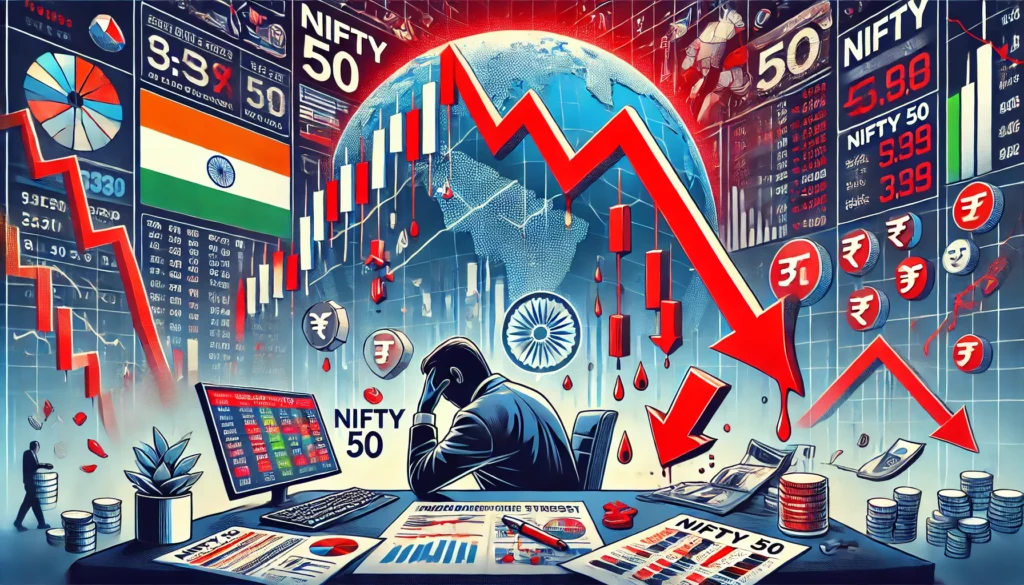A mere few days after the United States imposed sweeping tariffs on multiple imports and sparked global economic mayhem, the world’s counter-response has been both immediate and severe. In what seems to be a mix of political and economic retaliatory measures, countries are making use of everything from counter tariffs to political denouncements to push back against what has widely been termed “economic hostility.”
This piece analyzes how different world powers have reacted to the U.S. trade war, the most likely outcomes of those actions, and the effects on world governance.
China: Leading the Counteroffensive Effort
After being placed under a magnified focus by the U.S. and its tariffs, China was swift to retaliate with equal force. “A 34% tariff on all imports from the U.S., such as soybeans, aircraft parts, industrial machinery, and pharmaceuticals, will be implemented.”
Additional Chinese Actions:
- Complained further to the WTO
- Announced financial support for the relevant weakened industries to help ease the impacts.
- China began negotiations with the EU, India, and ASEAN for the purpose of forming an opposing group.
Statement by the Chinese Foreign Ministry:
“This type of one-sided attack aimed at one country disregards international supply chains. We will take measured actions as required to the degree this escalation requires.”
European Union: Economic and Diplomatic Retaliation
The EU has also taken trade defense measures, stating, “This was a betrayal of multilateralism,” and cautioning against attacks. Proposals in the European Commission’s meeting include the implementation of tariffs varying between 15% and 25% on the following American imports:
- cars
- Agricultural products (including corn and soy)
- High-tech machinery
Moreover, the EU is already looking into the WTO as other legal options, proposing to create a “Trade Defense Bloc” with other countries that have been impacted.
Ursula von der Leyen, head of the European Commission:
“By setting these tariffs, the US goes against the essence and the intention of international treaties.”
India: Geopolitical Shift
Although these countries were not the target of the cow’s sharpest claws, India worries that the US will target their textiles, jewelry, pharmaceuticals, and other sectors in their subsequent plans. Rather than respond directly, India has opted for a geopolitical shift:
- Maximizing Free Trade Agreements (FTAs) with the UK, the EU, and ASEAN
- Granting tax benefits to US opponents backbone exporters
- Boosting bilateral trade relations between Latin America and Africa.
India’s Minister of Commerce:
“We value open markets and fair trade competition. What we see now is a growing counterproductive policy”.
Japan: Quiet, But Calculated
Japan has dispatched a formal complaint through their ambassador based in Washington while simultaneously relying on a softer form of diplomacy. Important Japanese industries, most notably in automobiles and semiconductors, are lobbying against direct trade confrontations with Japan’s open ally and largest trading partner, the United States.
As a result, Japan is apparently;
- Redesigning supply networks to cut back on U.S. export-dominated trade.
- Participating in multilateral discussions with the EU and ASEAN.
- Augmenting fiscal spending to aid firms with greater dependence on exports.
Brazil & Argentina: Shifting Commodity Strategies
These two developing countries are already the largest emerging market economies in Latin America, but also the most vulnerable ones, especially for agricultural goods. Imports coming from the U.S., such as soy, beef, corn, and coffee, are of big international importance to the two. Hence, both Brazil and Argentina have begun to
- Look for new sellers in China and the Middle East.
- Increase talks with India, focusing on bilateral trade deals.
- Fast-tracking construction of infrastructure to lower logistics expenses associated with new trade routes.
A statement from the Brazilian Trade Ministry:
“We will not be cornered. We’re building new bridges, not walls.”
Smaller Economies: Economic Distress and Social Risk
Lesotho, Cambodia, and such other regions that are dependent on U.S. imports economically struggle with more issues. Many of these countries face American risks such as:
- Massive and illegal termination of domestic laborers in assembly and garment sectors.
- Devaluation of currency resulting from revenue and export drop.
- Increase in social disorder and unemployment.
The IMF and the World Bank are highly concerned and may step in with emergency funding for the devastated nations.
Global Trade Alliances in the Making?
This trade shock has not just caused temporary disruptions—it is sowing the seeds of long-term realignments in global commerce. Analysts are predicting:
- A rise in regional trade alliances—like EU-Africa, BRICS+, and Indo-Pacific partnerships.
- Reduced dependency on the U.S. market in strategic sectors.
- An accelerated push for de-dollarization in bilateral trade deals.
Market Perspective: Fear of a Trade Cold War
International investment ventures are currently in the middle of a never-ending cat-and-mouse situation regarding issues of a potential trade cold war lasting a long time where no human interaction is required, resulting in and marked by:
- Ongoing market declines.
- Slow but steady global GDP expansion.
- Increase in market instability and constant selling pressure.
The global equity meltdown—nearly $9 trillion lost in just a few days—is a grim reminder of how quickly policy shocks can ripple through financial systems.
Concluding Remarks
It seems that the U.S. triggered this economic conflict, but the response from the world has been cohesive and calculated, exhibiting unparalleled intensity. As countries search for new routes and strategic partners, a world post-2025 is likely to have reduced dependency on the U.S. economy while adopting a more multipolar trading system.
In the coming months, whether we achieve further resilience or fragmented society remains to be seen. There is one certainty, though: we have entered an unprecedented epoch of global economic transformation and emerging volatility.
What are your thoughts? Do you believe that the world will manage to contest U.S. tariffs successfully, or are we heading towards deeper conflict on a global economic scale? Please comment below.



